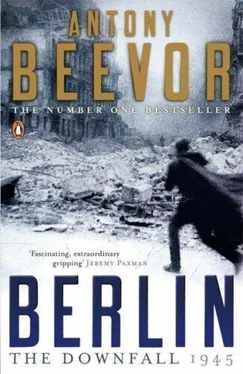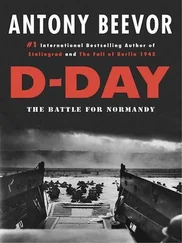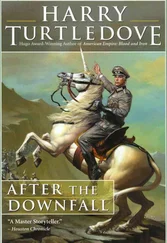There were, of course, a number of other forces or influences at work. Sexual freedom was a subject for lively debate within Communist Party circles during the 1920s, but during the following decade, Stalin ensured that Soviet society depicted itself as virtually asexual. This had nothing to do with genuine puritanism: it was because love and sex did not fit in with dogma designed to ‘deindividualize’ the individual. Human urges and emotions had to be suppressed. Freud’s work was banned, divorce and adultery were matters for strong Party disapproval. Criminal sanctions against homosexuality were reintroduced. The new doctrine extended even to the complete suppression of sex education. In graphic art, the clothed outline of a woman’s breasts was regarded as dangerously erotic. They had to be disguised under boiler suits. The regime clearly wanted any form of desire to be converted into love for the Party and, above all, the Great Leader.
Most ill-educated Red Army soldiers suffered from sexual ignorance and utterly unenlightened attitudes towards women. So the Soviet state’s attempts to suppress the libido of its people created what one Russian writer described as a sort of ‘barracks eroticism’ which was far more primitive and violent than ‘the most sordid foreign pornography’. And all this was combined with the dehumanizing influence of modern propaganda and the atavistic, warring impulses of men marked by fear and suffering.
Just as non-German nationality failed to save women from rape, so left-wing credentials provided little protection to men. German Communists who emerged from twelve years of clandestine belief to welcome their fraternal liberators usually found themselves handed over to SMERSH for investigation. The smiles of joy at the arrival of the Red Army soon froze on their faces in disbelief. The twisted logic of SMERSH could always turn a story, however genuine, into a conspiracy of calculated treachery. And there was always the killer question, formulated in advance in Moscow, to be posed to every prisoner or noncom-batant who professed allegiance to Stalin: ‘Why are you not with the partisans?’ The fact that there were no partisan groups in Germany was not regarded as a valid excuse. This pitilessly Manichaean line drummed in during the years of war naturally tended to compound the generic hatred of many Soviet soldiers. They asked their political officers why the German working class had not fought Hitler and never received a direct answer. It is not surprising, therefore, that when the Party line changed abruptly in mid-April to say that you should not hate all Germans, only Nazis, many soldiers took little notice.
The hate propaganda had fallen on receptive ears and the degree of loathing for anything German had become truly visceral. ‘Even the trees were enemy,’ said a soldier of the 3rd Belorussian Front. The Red Army was shocked and disbelieving when General Chernyakhovsky was killed by a stray shell outside Königsberg. His soldiers buried him in a makeshift grave. Branches were cut from trees. They were the only available substitute for the flowers thrown in on top of the coffin according to tradition. But suddenly a young soldier jumped down into the grave, straddled the coffin and frantically threw all the branches back out again. They came from enemy trees. They were defiling their hero’s resting place.
After Chernyakhovsky’s death, Marshal Vasilevsky, the former chief of the general staff, took over command of the 3rd Belorussian Front on Stalin’s order. Vasilevsky’s approach to the problem of discipline appears to have been little different from that of other senior commanders. According to one account, his chief of staff reported to him on looting and damage. ‘Comrade Marshal,’ he said, ‘the soldiers are not behaving themselves. They break furniture, mirrors and dishes. What are your instructions in this connection?’ Vasilevsky, perhaps the most intelligent and cultivated of all Soviet commanders, was apparently silent for a few moments. ‘I don’t give a fuck,’ he said eventually. ‘It is now time for our soldiers to issue their own justice.’
The destructive urge of Soviet soldiers in East Prussia was truly alarming. It went far beyond the chopping up of furniture to make a fire. Without thinking, they torched houses which could have given them warmth and shelter for the night when all was frozen hard outside. They were also furious to find a standard of living among peasant farmers far higher than anything that they had ever imagined. This provoked outrage at the idea that Germans, who had already been living so well, should have invaded the Soviet Union to loot and destroy.
Agranenko recorded in his diary what an old sapper felt about Germans. ‘How should one treat them, Comrade Captain? Just think of it. They were well off, well fed, had livestock, vegetable gardens and apple trees. And they invaded us. They went as far as my oblast of Voronezh. For this, Comrade Captain, we should strangle them.’ He paused. ‘I’m sorry for the children, Comrade Captain. Even though they are Fritz kids.’
The Soviet authorities, no doubt to save Stalin from blame for the disaster of 1941, had managed to inculcate a sense of collective guilt in the Soviet people that they had allowed the Motherland to be invaded. There can be little doubt that the expiation of suppressed guilt increases the violence of revenge. But many motives for violence were much more straightforward. Dmitry Shcheglov, a political officer with the 3rd Army, admitted that on seeing German larders they were ‘disgusted by the plenty’ which they found everywhere. They also hated the orderly arrangement of German domestic life. ‘I’d just love to smash my fist into all those neat rows of tins and bottles,’ he wrote. Red Army soldiers were astonished to see wirelesses in so many houses. The evidence of their eyes strongly implied that the Soviet Union was perhaps not quite the workers’ and peasants’ paradise they had been told. East Prussian farms produced a mixture of bewilderment, jealousy, admiration and anger which alarmed political officers.
The fears of army political departments were confirmed by reports from NKVD postal censors, who underlined negative comments in blue and positive comments in red. The NKVD drastically increased the censorship of letters home, hoping to control the way soldiers described the style of living of ordinary Germans and the ‘politically incorrect conclusions’ formed as a result. The NKVD was also horrified to find that soldiers were sending German postcards home. Some even had ‘anti-Soviet quotations from Hitler’s speeches’. This at least forced political departments to provide clean writing paper.
Clocks, china, mirrors and pianos were smashed in middle-class houses which Red Army soldiers assumed were those of German barons. A woman military doctor wrote home from near Königsberg, ‘You cannot imagine how many valuable things have been destroyed by the Ivans, how many beautiful and comfortable houses have been burned down. At the same time, the soldiers are right. They can’t take everything with them in this world or the other. And when a soldier breaks a wall-sized mirror, he somehow feels better. It’s a kind of distraction loosening the general tension of the body and the mind.’ In village streets there were snow storms from eviscerated pillows and feather mattresses. Much was also bewilderingly new to soldiers brought up in the provinces of the Soviet Union, especially Uzbeks and Turkmenians from Central Asia. They were apparently bemused on discovering hollow toothpicks for the first time: ‘We thought they were straws for drinking wine,’ one soldier said to Agranenko. Others, including officers, tried to smoke looted cigars, inhaling as if they were one of their newspaper roll-ups filled with black makhorka tobacco.
Читать дальше











